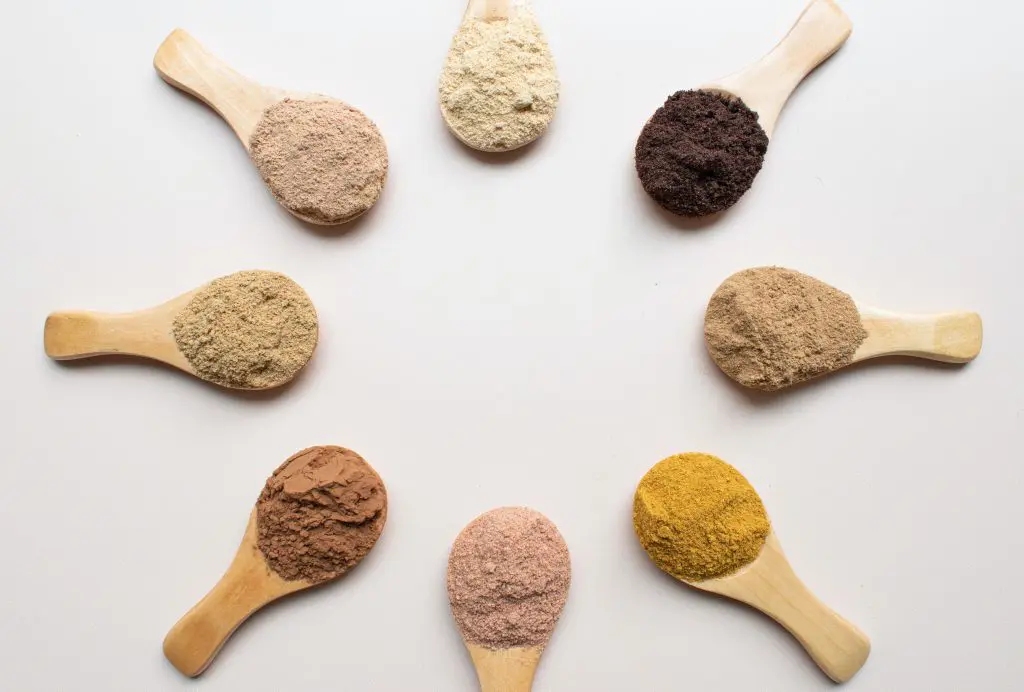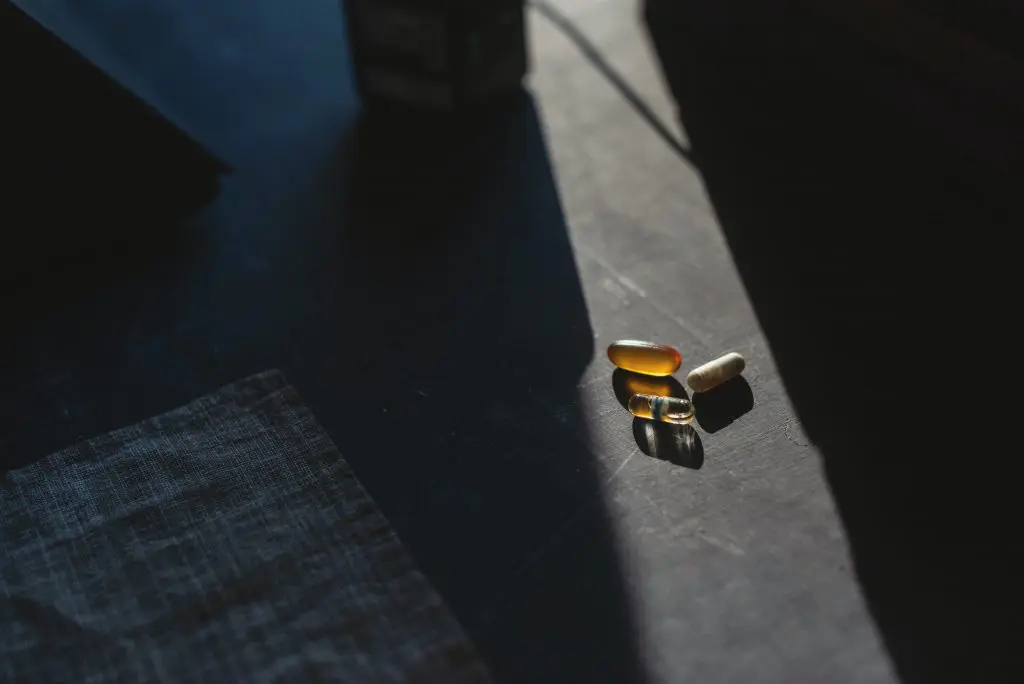Do Basketball and NBA Players Take Creatine?
As athletes and basketball players, we are always looking for good, legal, and efficient ways to better our game. And, if you’ve been hitting the gym frequently, you’ve probably heard other gym-rats discussing creatine, its benefits, and its uses.
However, if you’re unsure whether or not you should be taking creatine for basketball, then you’ve come to the right place. Below, we’re going to review whether or not basketball and NBA players take creatine.
In addition, we’re going to discuss the uses and benefits of taking creatine and whether or not adding a creatine supplement to your workout routine will make you a better basketball player.
Disclaimer
Please note, we here at Ball Are Life are affiliated with the Amazon Associates Program. This means we may receive a small commission from any purchases made via our links below. This is at no additional cost to you. While we appreciate the additional commission, we would never recommend a product or service which does not align with our core values nor any product which we would not use ourselves.

What is Creatine?
In the gym and athletic world, creatine has an almost otherworldly aspect to it. Purported as the ultimate workout supplement, creatine is one of the most popular and effective supplements available on the market.
And with a market size nearly rivaling that of pre-workout supplements, at over $400-million, creatine is widely used by athletes of all ages and levels. However, although creatine is widely used and discussed, not many athletes fully understand what creatine is.
Creatine is, in fact, a natural substance that is found in muscle cells. Creatine is used to help your muscles produce energy during heavy lifting, intense exercise, and high-performance workouts. And athletes, bodybuilders, and even basketball players all take creatine supplements to gain muscle, enhance strength, and improve their exercise performance.
Speaking in chemical terms, creatine shares many of the same properties with amino acids. In fact, your body produces creatine from the amino acids in glycine and arginine.
There are, however, several factors that can affect your body’s creatine stores, including your meat intake, the amount of exercise you complete, and your total muscle mass and hormone levels, including testosterone.
Within your body, approximately 95% of the creatine is stored in your muscles in the form of phosphocreatine. When you add a creatine supplement to your diet, you increase those stores of phosphocreatine. This stored phosphocreatine is a form of reserved energy in your cells as it assists your body in producing more high-energy molecules called ATP.
When you have more stored ATP, your body can better perform during heavy exercise, strenuous workouts, and high-intensity sessions.
How Can Creatine Help with Muscle Production?
Creatine can help with muscle production and growth in several ways. As stated above, creatine’s primary purpose is to increase the stores of phosphocreatine in your muscles. This added store can then be used to produce more ATP, which will allow you to have greater energy during a workout.
- Boosted Workouts – creatine’s primary benefit is in its ability to help you boost your workouts. This not only allows you to complete more reps, but also allows you to increase the total amount of time you put into a workout without feeling fatigued.
- Raises Anabolic Hormones – similarly, creatine has been shown to raise your anabolic hormone levels, including the hormone IGF-1, which helps to promote muscle and tissue growth.
- Increases Cell Hydration – creatine is also particularly adept at lifting water content from the cells in your muscles, which can cause a volumization effect that plays a role in overall muscle growth.
- Reduction in Protein Breakdown – creatine has also been shown to increase total muscle mass by reducing muscle breakdown.
- Lower Myostatin Levels – the protein myostatin has been shown to slow or inhibit muscle growth. Creatine, however, has been shown to lower the levels of myostatin in your body, which can increase overall muscle growth.

How Can Creatine Help with Strength and Exercise?
In a similar fashion to how creatine can help with muscle production, it can also improve strength, power, and high-intensity exercise performance. The improvements provided by creatine are primarily due to your body’s increased ability and storage of ATP.
Interestingly, ATP stores are typically depleted withinn8-10 seconds after a high-intensity activity or exercise. However, due to the creatine supplement, your body is able to produce more ATP, helping you to maintain peak performance for additional seconds.
While these seconds may not sound meaningful, they can amount to an extra rep, a longer sprint, or a few additional push-ups. These additional reps can have profound effects on your overall health and workout regimen, allowing you to build both strength and endurance.
Similarly, in one review, adding creatine to a training regimen increased strength by 8%, weightlifting ability by 14%, and one-rep max on a bench press by up to 43%.
Another review found that supplementing with creatine over a 28-day span increased bike-sprinting performance by 15% and bench-press abilities by 6%.
Negative Effects of Creatine
As creatine is one of the most widely used supplements on the market, it has been thoroughly researched by professional academics. And in their research, creatine was shown to have no adverse side effects. Similarly, the International Society of Sports Nutrition regards creatine as one of the safest and most beneficial sports supplements on the market.
However, there still remains many naysayers and critics against the use of creatine. These critics claim, without data, that the use of creatine supplements will lead to weight gain, bloating, muscle cramps, kidney stones, liver damage, and a whole other slew of issues.
Again, these claims are without merit. In multiple scientific tests, creatine has been shown to have no adverse side effects and no long-term health consequences.

Do NBA and Basketball Players Take Creatine?
Admittedly, no NBA or professional basketball player has come out and claimed to have taken creatine to improve their muscular strength. However, it can be deduced that many NBA players have supplemented with creatine due to their increased strength, size, and muscle tone between seasons.
Is Creatine Banned in the NBA or Professional Basketball League’s?
No, creatine is not banned in the NBA, WNBA, NCAA, or any other professional basketball league. As creatine is a natural compound found in the body, it is considered a safe and legal supplement for nearly all leagues.
How Does Creatine Help Basketball Players?
While creatine won’t have much effect on your performance in a game or during a practice session, it can be a useful supplement within your training regimen. That is, if you are looking to push yourself and elevate your workout routines, then creatine may be a useful tool.
Creatine can help you perform short, explosive movements. For this reason, it is often the go-to supplement of choice for people looking to lift weights and gain muscle. If you are looking to increase your strength and muscle definition for on-court play, then creatine is a perfect choice.
However, creatine is a supplement that merely assists in your workouts and exercises. That is, taking creatine alone won’t make you bulked or more defined. Rather, it should be supplemented within your exercise and workout routine to help you go the extra mile.

Best Creatine Supplements for Basketball Players
Although there are a number of different types of creatine, overall creatine monohydrate is the most common form. In addition, creatine monohydrate is the form that has been most widely studied and tested.
This means that most of creatine’s beneficial effects have been observed and studied almost exclusively against creatine monohydrate. If you are considering adding creatine to your workout routine, we recommend purchasing a creatine monohydrate formula.
With that said, there are, admittedly, few variations between creatine supplements. As such, if you are considering purchasing a creatine supplement, you should focus on price and purity.
We also recommend choosing a creatine manufacturer that has received an independent, third-party certification of authenticity and one that follow strict guidelines to ensure purity. This can include certifications from the NSF or Informed Sport.
- Thorne Research – Creatine Monohydrate – NSF Certified, Thorne Research’s Creatine Monohydrate comes in a powdered format and can be easily mixed with water. Just one scoop contains 5-grams of creatine monohydrate and is both gluten and nut-free.
- Proven4 Pre-Workout – Proven4’s Pre-Workout supplement is a mix of both pre-workout and creatine. Providing you with both creatine monohydrate and a blend of effective pre-workout supplements, you can easily reach your supplement needs in one scoop. And with Proven4 being NSF Certified, it is by far one of the best supplements available on the market for athletes, bodybuilders, and basketball players alike.
- Cytosport Creatine – Cytosport’s Creatine is unflavored, it comes in a rather unappealing package, and doesn’t claim to do much more than what creatine is supposed to do. And that’s why we love it. Simple, straight to the point, NSF Certified, and relatively cheap compared to other brands, Cytosport Creatine is an effective choice for someone looking to add creatine to their workout routine.
